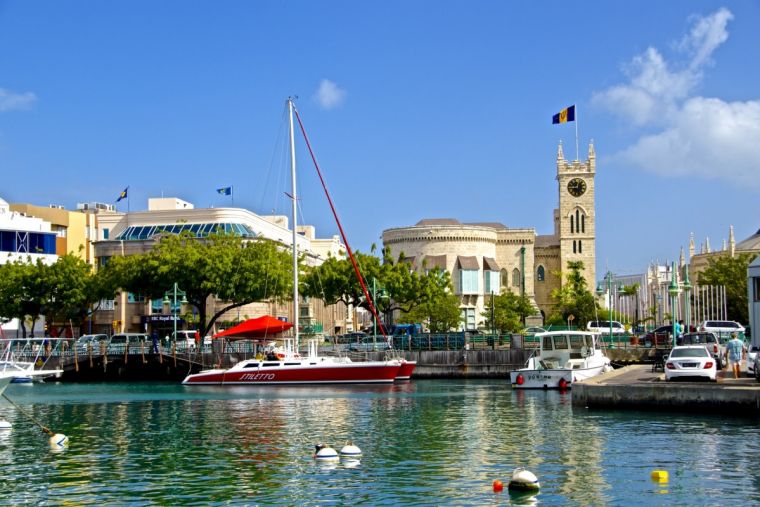What now for Barbados - and the world?

At midnight on Tuesday 30 November, 55 years after gaining independence, Barbados became a republic. It decided that it was time the country left its colonial past, divest herself of the residual vestiges of British colonial rule and take a giant step to self-determination.
The Prime Minister, Mia Mottley, said much the same, describing the move as a "seminal moment" in the history of Barbados, showing the country's complete confidence.
There's nothing to fear in this, nor does it signal any disloyalty to the Queen or the Crown. It's just that Barbados is saying that it's time for a new relationship with Britain and that she wants to operate on an equal basis and as an equal partner with other countries.
It's what the Prime Minister campaigned on, and by winning a landslide victory in the 2018 election, the Bajan people have given her the mandate to break with the monarchy and lead the country in a new direction.
The cynics are already out, rubbishing what Barbados has done, saying it will not make the slightest difference to the average Bajan, for with unemployment nearing 13 per cent, the economy contracting, visitor numbers down because Covid (as a nation dependent on tourism), becoming a republic is not at the top of most people's priorities and it's not the best time, they argue, to make such a change.
Some Bajans are also saying that the economic fallout from the Covid pandemic means Barbados will now need to grapple with falling revenue, closed borders, and travel restrictions – the pressing priority for the 280,000 people who are dependent on tourism -and not any constitutional reform.
By becoming a republic, what will it mean for Barbados?
It will undoubtedly give Barbados a chance to shake off its colonial past and help it psychologically prepare for the future.
Barbados' long association with Britain started in the 17th century and it remained a British possession until 1966 when it became independent. The island became a plantation economy in 1665, first producing cotton and tobacco for the British and European markets before turning to sugar. It made Barbados productive but plunged the country deep into the Atlantic slave trade.
Over half a million slaves were brought from Africa between 1627 and 1833 to work on the plantations In Barbados. Sugar made their owners and Britain very rich, but it brought untold misery to hundreds of thousands of slaves. Prince Charles appeared to acknowledge this in his speech during the handover ceremony, referring to the "appalling atrocity of slavery" which blighted the island's history.
The colonial legacy lingered long in Barbados, and for many years the country was known as 'Little England.' People in the Caribbean mocked her, as it seemed she was clinging to a colonial past that many of them had replaced with a national identity. For example, a statue of Horatio Nelson placed in Barbados main square by the Bajan ruling class in 1813 remained there until recently. It was only removed as the move towards a republic gained momentum, and the Black Lives Matter demandsbegan to penetrate Bajan society. 'Trafalgar Square' in Barbados, where the statue stood, has also been renamed 'National Heroes Square'.
Becoming a republic will mean many changes, and while some are structural, others will be cosmetic. The government promised a new constitution next year, and the office of Governor-General - the Queen's representative and Head of State is abolished. Dame Sandra Mason is the President-Elect, and Barbados will quietly drop all references to 'Royal', and all Crown territories will now belong to the Bajan state.
Bajans also will no longer need to swear allegiance to the Queen as this will be replaced by an oath to the state. Nor will the country need to refer official appointments for ratification to Britain, or the Privy Council as the final court of appeal, a practice discarded in 2001 when Barbados joined the Caribbean Court of Justice.
Bajans will also drop many centuries-old British traditions and actively and aggressively promote a modern Bajan identity. Like Trinidad, Italy, Germany, India etc., Barbados will remain a parliamentary democracy with both a president and a prime minister. The people elect the parliament, and the government is chosen from the members of parliament and is answerable and accountable to it. The prime minister heads the government, and every five years at a general election, the people will get a chance to change the government.
Next year, the government promises to consult on a new constitution, and Barbados has agreed to stay in the Commonwealth. She is joining the 54 member states, many of which were former British colonies and is now one of four countries in the Caribbean that are republics, leaving eight still constitutionally tied to Britain.
Who will be next? Australia, New Zealand, Canada, and Jamaica have all made noises about becoming a republic, and in Jamaica, it's a long-running debate. The road may not be as straightforward as in Barbados, where it only needed a two-thirds majority in both Houses of Parliament to enact the law. Some territories will require a referendum, which could be divisive. In others, it could lead to political instability with catastrophic consequences. Australia seems to be the favouriteand if it is, I fear the fallout will cause more than the ripple effect of Barbados' recent action.
Roy Francis is an award-winning former BBC 'Songs of Praise' producer and the author of 'Windrush and the Black Pentecostal Church in Britain'.











